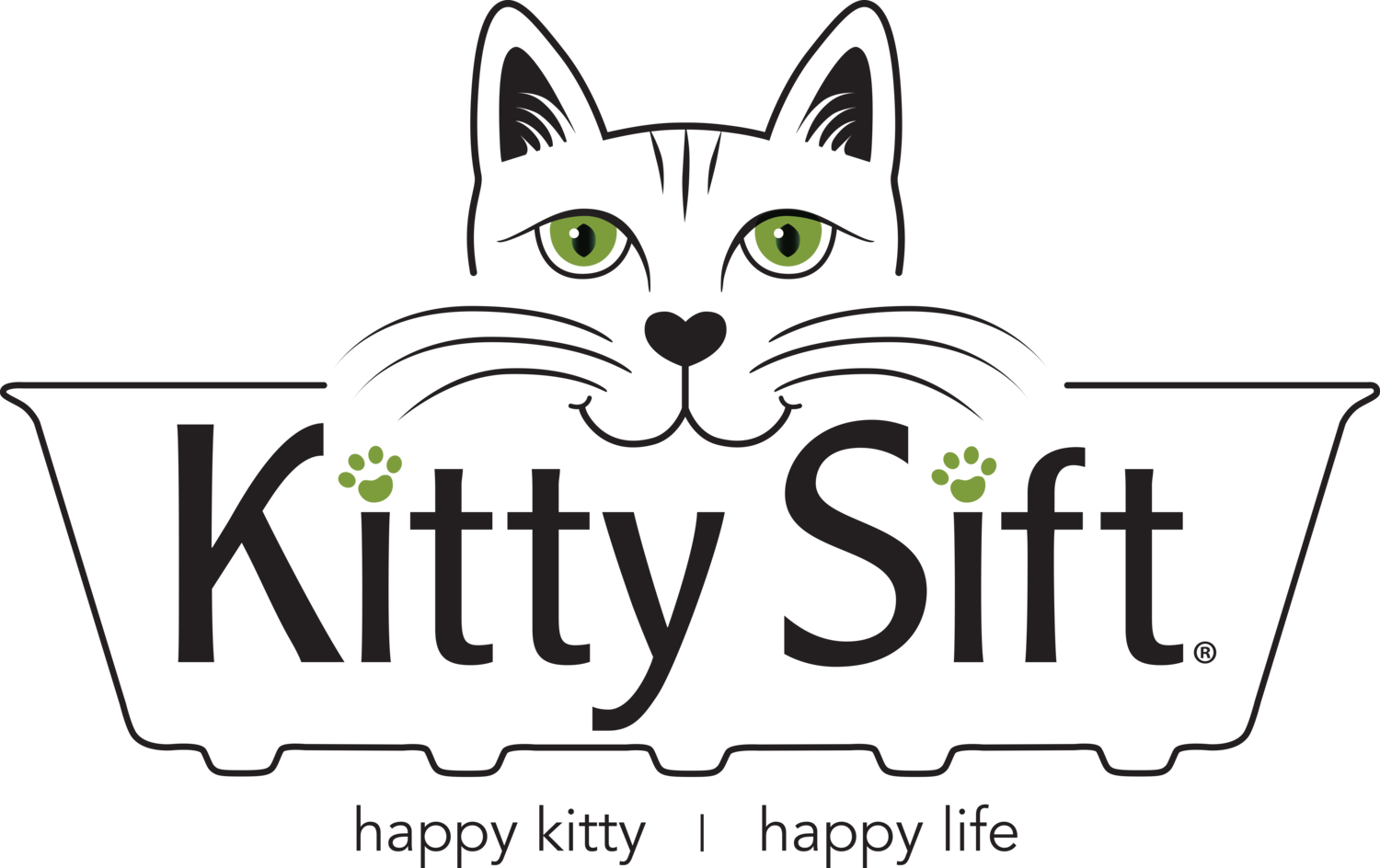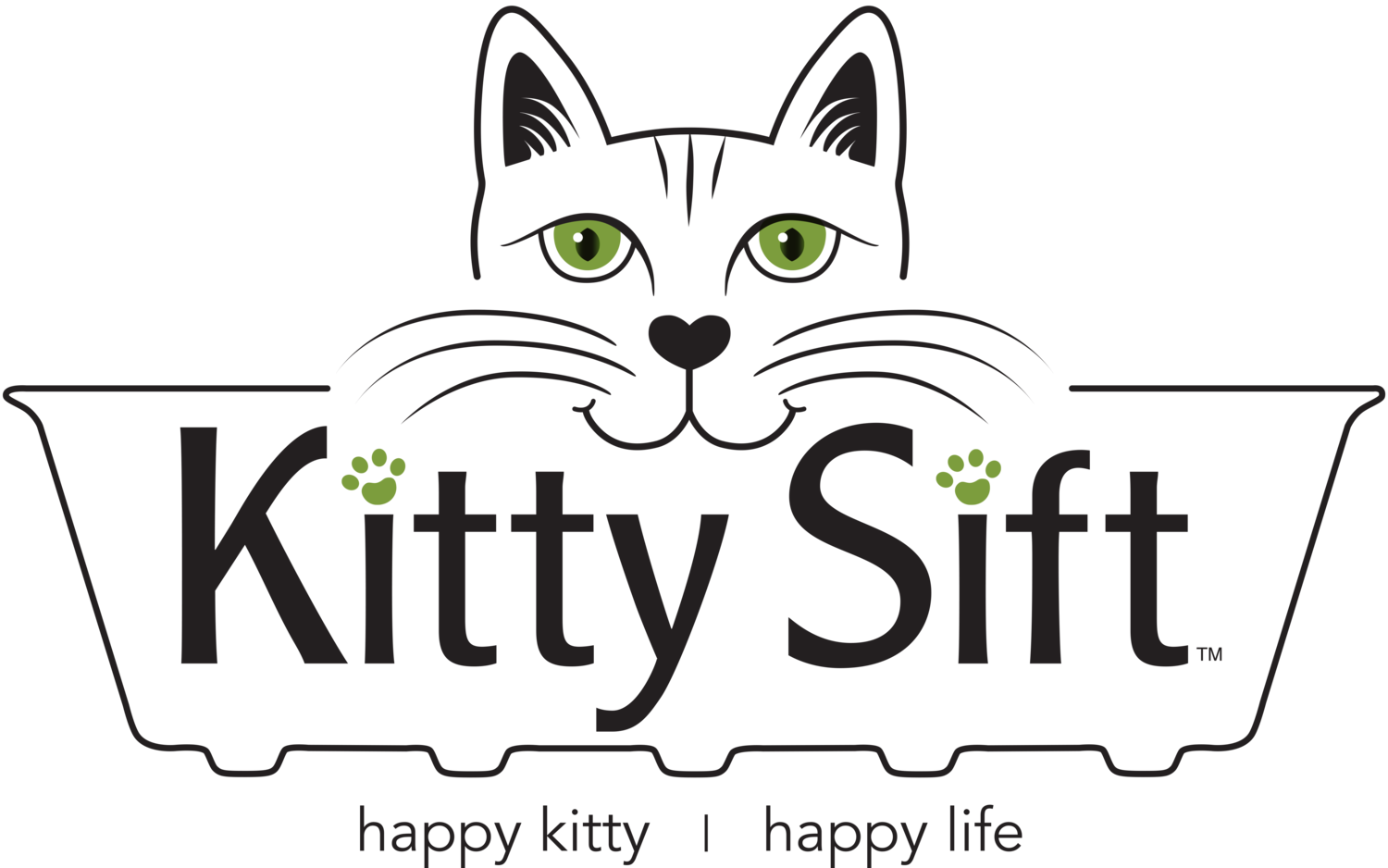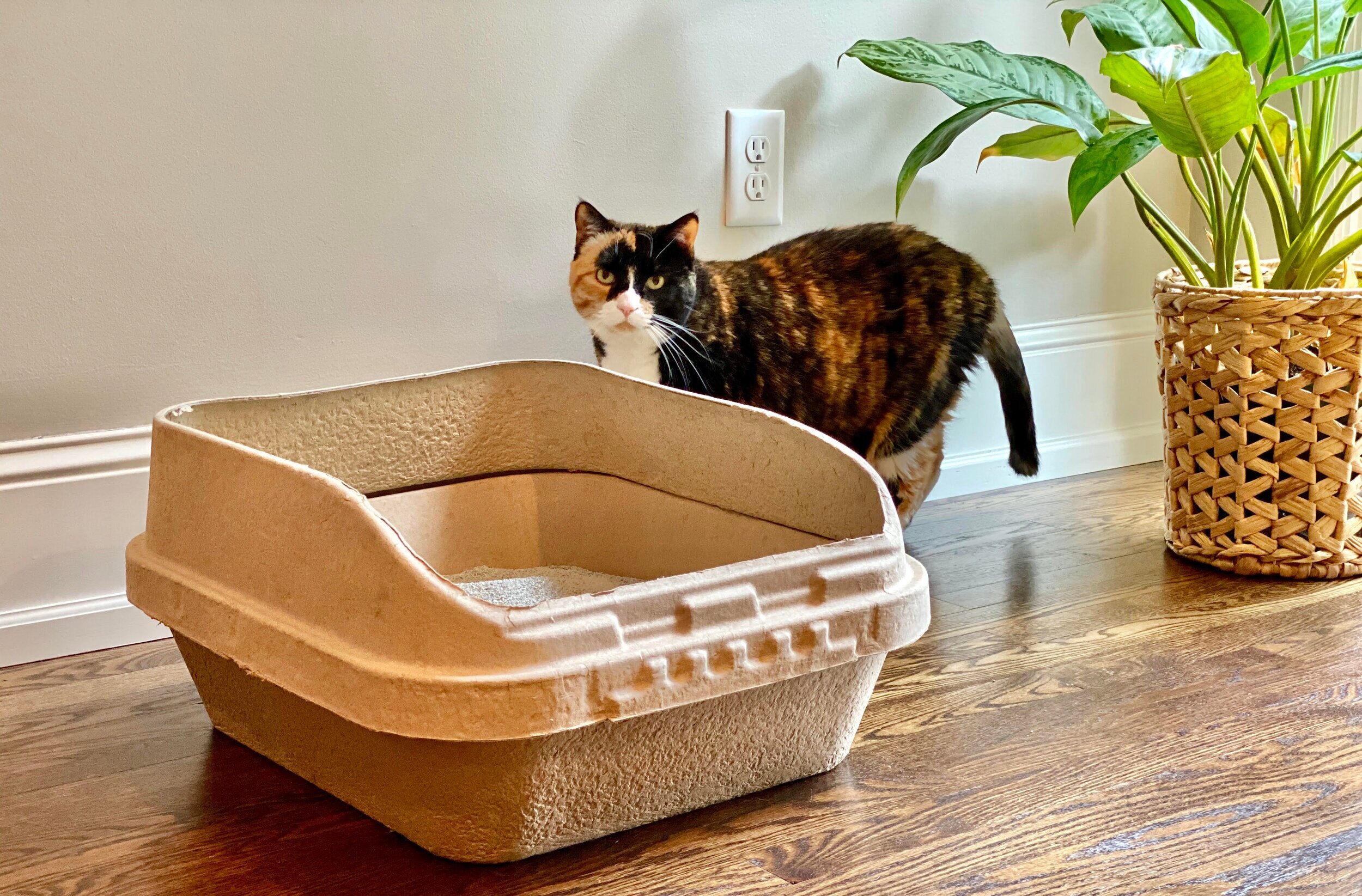An Eco-Friendly Litter Box Can Save Your Cat’s Life
Why plastic litter boxes are bad for you, your cat, and the planet.
Plastic is a huge problem and it’s only going to get worse unless we do something to change it. According to plasticoceans.org, humans are creating over 300 million tons of plastic every year. Even worse, more than half of that is from single-use items.
Just because plastic litter boxes aren’t single use, doesn’t mean that they don’t still have an imprint on the environment once you finally ditch the old smelly litter box for something cleaner. Or that your cats’ health isn’t at risk. Monthly deep-cleanings of your litter box helps them last longer & keep your kitty healthier, but plastic still holds bacteria. No matter how much you clean, the bacteria will hide out in the little scratch marks that your kitty leaves behind.
Are there alternatives to plastic litter boxes?
There are a handful of innovators in the eco-friendly litter box category. Just as with other manufactured products, a label can be placed on anything to seem ‘better’ than the competitor. Many of the products on the market may be plastic-free by label, but produced in a poor processing plant spewing chemicals into the environment.
At Kitty Sift, we make our litter boxes and sifters with 100% post-consumer waste recycled cardboard. Our disposable sifting litter liners can be reused multiple times, giving it even more life. PLUS, when you are done with our biodegradable products, you can recycle them or at the very least, know that they will not be clogging our landfills for years.
Can your cat get sick from a dirty box?
Plastic litter boxes are great at holding litter, but they are also great at holding bacteria & absorbing odor. If you have noticed, cats are natural diggers and prefer to bury their waste. Those claw marks are just deep enough to hold on tight to the bacteria that is in your litter box.
Most vets recommend scooping your box twice a day and deep cleaning it once a month. Switching to a disposable box can help reduce the bacteria that is missed during cleaning. While it may seem wasteful, recycled cardboard can be broken down easily, while 90% of the plastic that has been produced is still on this planet.
The buildup of these bacteria can cause multiple health problems that can directly affect your cat such as:
Parasites: Parasites such as worms are transferred most often through stool. Because they stand directly in their litter box, anything that is in that box has a risk of sticking to your kitty including eggs of these dangerous parasites. The most common worms found are tapeworms or roundworms. While treating your cat it’s even more important to keep their litter box clean to help keep the parasites from returning.
FLUTD: FLUTD or Feline Lower Urinary Tract Disease can describe a variety of conditions, all of which affect your cats’ bladder and urethra. A common issues associated with FLUTD are urinary stones & kidney / bladder irritation.
Is a dirty litter box a risk for pregnant women?
It’s not just your cats’ health that is at risk from the nasty stuff that lives in your litter box. Pregnant women are often discouraged from exposing themselves and their baby to litter boxes. In reality, the risk itself comes not from your cat nor from the litter but really from the bacteria and parasites that are contained in the box. Keeping your kitty litter box clean is the easiest way to prevent the spread of bacteria built-up and keep the whole family safe & healthy.
What is Toxoplasmosis
Did you know that the CDC says that more than 40 million Americans have an illness that is spread by your cats’ litter box? Toxoplasmosis, aka The Gondii parasite, is one of the most common parasites in the world. You can catch these in a lot of different ways. While the most common way to contract this parasite is through undercooked contaminated meat, your cats’ litter box is another place these nasties like to hang out!
While it’s extremely unlikely that you can pick up Toxoplasmosis from your cat, its important to remember that your kitty can pick up the parasite by eating smaller animals that are carrying it. After your cat has been infected they can spread the parasite for about two weeks.
Can I get Salmonella from my cat?
Since 1999 science has noticed outbreaks of Salmonella in cats, mostly during the late winter and early spring months. The biggest difference is, cats’ bodies do not react the same to Salmonella as humans. Their bodies are used to eating raw meat, so while they may become ill and might be a little more sluggish, some might not even show signs at all.
As we learned earlier, bacteria likes to hang out in your cats’ litter box. However, this bacteria can be found not just in their stool, but also in your cat’s saliva.
This is another reason that it’s a great idea to switch out your litter box often. A clean eco-friendly box can be a real game-changer not just in helping out planet earth, but in keeping your family safe and healthy from some of these illnesses and other bacteria.
Is litter box aversion caused by a dirty litter box?
A lot of cats don’t like using a dirty litter box. In fact, roughly 10% of all cats develop litter box avoidance problems. In some cases that can lead a cat to stop using their box altogether. While there are a few reasons that can cause litter box avoidance, a dirty plastic litter box that is filled with bacteria could very well be the culprit.
If your kitty has arthritis or other after effects of declawing, he may also prefer Kitty Sift’s post-consumer recycled litter box because the material is softer than the hard plastic.
Cats do take time to adjust to new things so switching to an eco-friendly litter box might seem like a bad idea. The truth is, cats like to dig naturally. If you do switch out their litter box, try to keep the same type of litter and slowly switch it out as they get more comfortable.
So Now What?
The best defense to protecting yourself and your kitty from these issues making the switch away from plastic litter boxes. Or biodegradable & disposable sifting litter liners and litter boxes were made to keep you and your kitty healthier & happier. Can you imagine a life with no more scooping, bagging or scraping? And what about a planet with no more plastic waste?
Make the switch to Kitty Sift! Happy Kitty. Happy Life.




